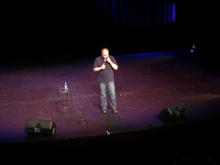AT&T Abandons Wireless Consolidation Attempt
It is hard to avoid becoming cynical when watching the federal government interact with big corporations like AT&T. So when AT&T announced it would merge with T-Mobile, giving AT&T and Verizon a combined 3 out of 4 cellular subscribers, I thought two things:
1) What a terrible idea. Higher prices, fewer jobs, less choices, etc.
2) The Federal Government will likely not prevent it - instead opting for some minor concessions that no one will bother to enforce.
Sometimes, it is very good to be wrong.
Cecilia Kang of the Washington Post, decodes the language from Wall Street to explain the biggest winner from the federal government blocking the merger: consumers.
“Without the combination, we think the wireless industry will be further weakened by continued hypercompetitive activity, particularly regarding subscriber acquisition costs,” said Nomura Securities analyst Mike McCormack. That means customers can still get lower rates as the industry competes for their dollars. T-Mobile, for example, will continue to be a low-cost competitor, according to consumer advocacy group Consumers Union. A survey showed that data plans from T-Mobile were $15 to $50 less per month than those offered by AT&T.An excellent reminder that what is best for Wall Street is not what is best for the 99%. Big companies like AT&T find competing for customers a hassle that lowers their profits -- they consider a market with four sellers to be hypercompetitive. In wireline, they have acquiesced to the "competition" of two competitors -- cable and DSL. This is one reason communities build their own networks -- the private sector is not truly competitive when it comes to ISPs and most communities have no prospect real of improvement absent a public investment. But we should rejoice in this victory -- because we earned it. Without the hard work of many grassroots groups, it is hard to imagine the Department of Justice or FCC standing up to such a powerful corporation.



